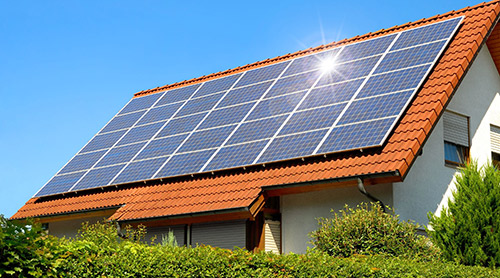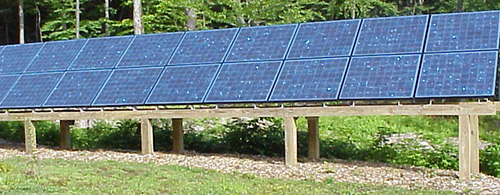 |
|
 |
|
Active solar heating systems use solar energy to heat a fluid — either liquid or air — and then transfer the solar heat directly to the interior space or to a storage system for later use. If the solar system cannot provide adequate space heating, an auxiliary or back-up system provides the additional heat. Liquid systems are more often used when storage is included, and are well suited for radiant heating systems, boilers with hot water radiators, and even absorption heat pumps and coolers. Both liquid and air systems can supplement forced air systems.
Benefits of Active Solar for heat & electricity
- Can get this heat with solar systems under your roof or with panels
- Can be just for domestic hot water year round
- Can be just for heat year round
- Can provide electricity
- Federal tax credits
- State rebate dollars
- Net metering
Risks for Active Solar for heat
- High initial cost, but some creative ideas are addressing this




 Tortorice's Tips are written and republished by Bob Tortorice, our owner and head contractor. Bob Tortorice has more than 35 years of experience in residential and commercial construction and shares his knowledge through his monthly article.
Tortorice's Tips are written and republished by Bob Tortorice, our owner and head contractor. Bob Tortorice has more than 35 years of experience in residential and commercial construction and shares his knowledge through his monthly article.